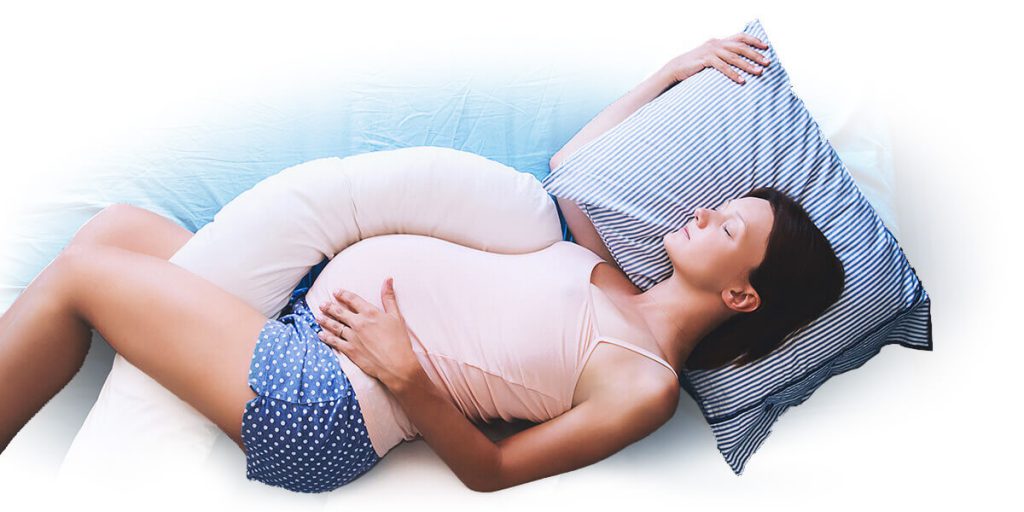When a woman is pregnant, her body experiences many changes that can affect her health. This can also cause changes in a woman’s sleeping patterns or the quality of the sleep she gets. For example, she may start snoring more frequently or see a change in her breathing at night.
Both pregnancy and sleep apnea can cause excessive fatigue, and many other sleep apnea symptoms can also mimic normal signs of pregnancy. It’s important for women who are expecting to get a diagnosis for their sleep apnea as soon as possible– otherwise, it can affect her health and her baby’s health as well.
Here are some common symptoms of sleep apnea:
- Waking with a headache and/or dry mouth
- Daytime Fatigue
- Nighttime heartburn and frequent nighttime urination
- High blood pressure/heart disease
- Irritability
As many as ten percent of expectant mothers could be suffering from sleep apnea during pregnancy. Sleep apnea can be genetic, so women who have family members with sleep apnea can be at higher risk. You should seek medical attention right away if you notice sleep apnea symptoms while you’re pregnant or if you’re thinking about conceiving.
Dr. Dailey is an experienced sleep dentist who’s recognized as a Diplomate by the American Academy of Dental Sleep Medicine. She can provide you with a free evaluation, and she’ll arrange for you to get an official sleep apnea diagnosis if necessary.



What Expectant Mothers Can Do to Prevent Sleep Apnea
Health management plays an important role in preventing sleep apnea. Being health conscious is the best way for pregnant women to protect themselves and their babies during pregnancy. An expectant mother can do this by managing what she eats and exercising regularly.
Women who are obese or overweight have a higher risk of developing sleep apnea. Eating a healthy diet helps control the patient’s weight during pregnancy. While it’s important for an expectant mother to eat enough to provide proper nutrients for herself and her baby, she should pay extra attention to the amount of weight she may be gaining.
Changing sleep positions can also help prevent sleep apnea episodes. Sleeping on your side instead of your back helps to increase the airflow so you can breathe freely.
The Best Ways to Treat Sleep Apnea During Pregnancy
Once you’ve been diagnosed with sleep apnea, Dr. Dailey will determine the treatment method that’s right for you. A popular treatment option is an oral appliance. This sleep aid is worn in your mouth at night and it’s custom-made to fit your jaw. We feature a variety of oral appliances, so Dr. Dailey can help you find the one that best fits your needs.
An Oral appliance is an effective alternative to the CPAP treatment method. CPAP is very effective, but many patients have found to be intrusive or inconvenient. A lot of patients stop using their CPAP machine, which is why doctors are working to find alternative treatments.
In some cases, surgery you may be recommended to treat sleep apnea. In these circumstances, it’s best to perform the surgery either before or after pregnancy occurs.
Dr. Dailey has-top notch training in sleep apnea care. She’ll be happy to answer any questions you have about sleep apnea and how it relates to pregnancy.
If you’re experiencing any sleep apnea symptoms such as heavy snoring or daytime sleepiness, we encourage you to contact us at our office in Ann Arbor right away.
Your health is our number one priority — we’re here to make sure you get the help you need.
Contact Dr. Dailey
734-996-0055
Being an expectant mother is challenging enough, and if you add in the fact you’re not sleeping well, Dr. Dailey and our entire Ann Arbor, MI professional team can give you a reprieve. Dr. Dailey will evaluate and determine how to help you achieve the rest you deserve. Imagine waking up refreshed while pregnant. Give us a call and we’ll work diligently to ensure you’re on your way to sleep success.